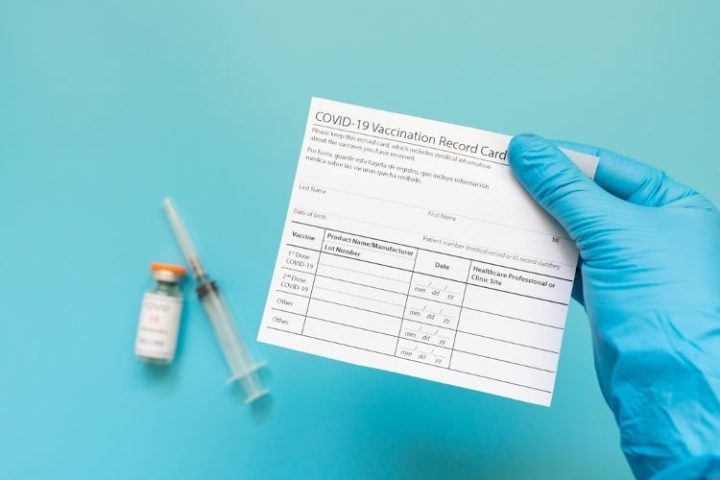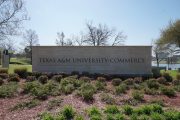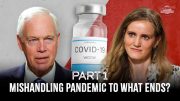
Podcast: Play in new window | Download ()
Subscribe: Android | RSS | More
Colleges all over the country have implemented vaccine mandates with exemptions for personal, religious, or philosophical reasons, but Washington State University has announced that the personal and philosophical exemptions will be eliminated once the Food and Drug Administration grants full approval to any of the three vaccines, which are currently under an emergency authorization.
Citing the delta variant, WSU said, “The change is among two implemented by the university today in preparation for the start of the new academic year and with the increasing threat of the delta variant for those who are unvaccinated.”
The second change referenced in the announcement is an acceleration of the deadline for students to comply with the vaccination requirement. Originally set for November, the school is now requiring students to be fully vaccinated by September 10. For faculty and staff, the deadline is now August 23, which is when the school begins its fall term.
According to the announcement, once the personal exemptions are formally removed from the university’s vaccination policy, students have up to 45 days to “initiate the vaccination process by getting at least one dose of an approved vaccine or request a new religious or medical exemption.”
Students and faculty who are not fully vaccinated are required to wear masks inside the WSU facilities, according to the announcement. And while TAs and professors are not permitted to ask for proof of vaccination in the classroom, according to the website, if an unmasked student’s unvaccinated status is disclosed, the student can be asked to leave the classroom and can be charged with a violation under the school’s Center for Community Standards.
For the time being, unvaccinated students and employees are not restricted from participating in certain events, but the school has warned that any of its existing policies can change.
“The university may impose further restrictions in the interest of maintaining public health, until you have complied with the vaccine requirement,” the school said in a Thursday e-mail to its students.
Meanwhile, the Seattle Times reported that WSU’s policy is likely to cause campus drama as the school’s head football coach, Nick Rolovich, made national news when he tweeted last month that he made the decision not to get vaccinated for “reasons which will remain private.”
Whether other schools plan to eliminate the personal and philosophical exemptions following full FDA approval of the vaccines remains to be seen. But for some schools, full FDA approval of the vaccines will be the deciding factor behind the implementation of COVID vaccine mandates.
“We’d like to see it approved as fast as humanly possible, so we can really go back to just the more normal experience,” said Jim Malatras, chancellor of the State University of New York (SUNY) system, which serves 400,000 students.
The Wall Street Journal reported the SUNY system has not imposed a vaccine mandate for students until the vaccines are fully authorized by the FDA under guidance from the state. Until then, students are required to be either vaccinated or undergo weekly testing, the Journal reported.
The medical community continues to be divided on the widespread administering of COVID vaccines, with some voicing their opposition to college vaccination mandates.
According to the Epoch Times, Dr. Hooman Noorchashm, a physician-scientist and an advocate for ethics, patient safety, and women’s health, sent an open letter to Rutgers University after the school became the first major college in the United States to require students to receive the vaccine. The letter warned of potential safety risks associated with the COVID-19 vaccine. CDC’s Vaccine Adverse Event Reporting System (VAERS) already reveals more than 500,000 reports of injury and death after use of COVID vaccines, including more than 12,000 deaths. These numbers could be significantly higher, as they only capture those that were reported to VAERS.
Noorchashm argued that the university’s policy should exempt students who have already achieved natural immunity by contracting the virus.
“Some experts believe that natural immunity may even be more robust than vaccine immunity — but at least equally effective in the vast majority of those naturally infected,” Noorchashm said.
“Indiscriminately vaccinating persons with recent COVID-19 infections poses a risk of clinical harm to recently infected persons. There have been some very prominent young deaths following vaccination — and it is becoming clear that adverse event [reaction] rates are higher in the previously infected,” Noorchashm added.
In an open letter to universities requiring the vaccine, the Association of American Physicians and Surgeons (AAPS) asked officials to reconsider their policies, asserting that the three COVID-19 vaccines “are not FDA approved to treat, cure or prevent any disease at this time.”
“Clinical trials will continue for at least two years before the FDA can even consider approval of these vaccines as effective and safe,” the letter stated.
AAPS also warned that positive COVID-19 test results “may be false-positive testing errors or asymptomatic infection that is not clinically proven to spread disease.” With effective outpatient early treatments for the disease, “Both unvaccinated and vaccinated students should be permitted on campus,” the letter concluded.




